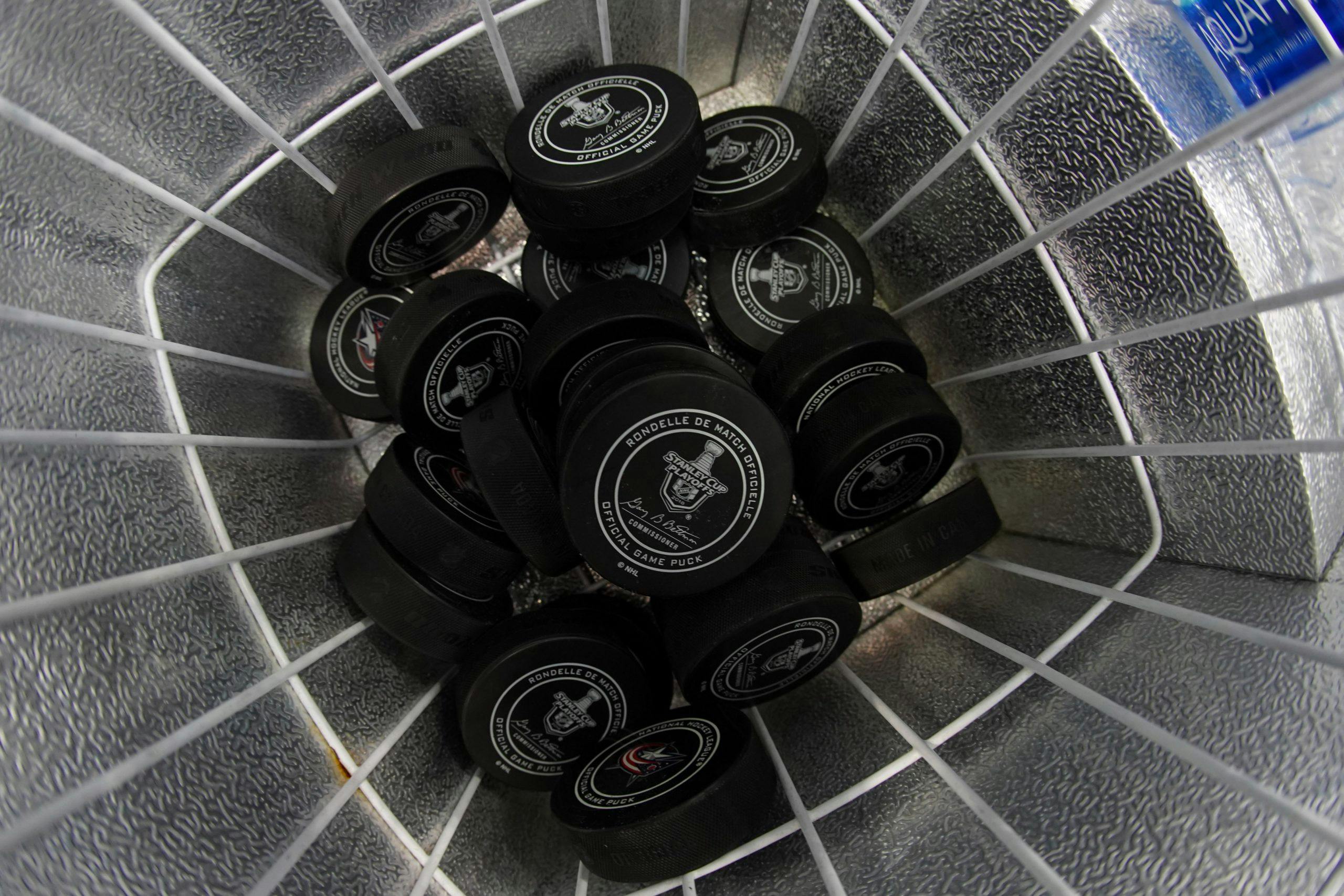When the Hockey Diversity Alliance, among other vocal groups and individuals, called for the NHL to postpone its games today in peaceful protest against racial injustice in the United States and around the world, it was all too tempting for too many people to ask: “but what will that accomplish?”
Never mind that the Hockey Diversity Alliance and its members don’t owe anybody an explanation (though they provided one anyway). At this point, if you can’t see the point of the protest, it’s probably on you to educate yourselves. There doesn’t necessarily need to have a straight line drawn from action (or inaction) to instantaneous results, there doesn’t need to be step-by-step instructions on fixing systemic issues. It’s perfectly acceptable to start by generating attention and conversation.
We the @TheOfficialHDA have formally requested the @NHL to suspend all playoff games today. We strongly feel this sends a clear message that human rights take priority over sports.
— Evander Kane (@evanderkane_9) August 27, 2020
This would be a great time for leaders and role models in a sport that is dominated by Caucasian players to step up in solidarity and jumpstart the conversation on racial injustice among the NHL’s fanbase, a demographic that is on average far more disconnected than those of the NBA and MLB from the issues that drove the Milwaukee Bucks to boycott their playoff game yesterday and ignite a fire under the world of professional sports.
Instead, teams and players that were already scheduled to talk about hockey today changed their Zoom availability to “TBA”.
Scheduled Zoom media availabilites for the @GoldenKnights and @Canucks that were originally scheduled to be happening right now have been changed to "TBA" on the NHL's media website.
— Chris Johnston (@reporterchris) August 27, 2020
Rather than using this opportunity to discuss what racial equality and solidarity means to them, what they’ve learned and what they’d like to learn, NHL players are effectively burying their heads in the sand and hanging the Hockey Diversity Alliance out to dry. Without player availability, it seems like NHL teams are waiting for yet another inconvenient social movement to blow over so they could get back to chasing that big silver chalice.
Last night on Hockey Night in Canada, Kelly Hrudey made a statement of his own, expressing his disappointment that games were being played and that, given what was happening in the real world, they were spending the evening talking about hockey.
LOUDER FOR THE PEOPLE IN THE BACK
"I don't think we should be here." @KellyHrudey
👏👏👏👏👏👏👏👏👏👏👏👏👏👏 pic.twitter.com/c4HZrWqCo5
— Here's Your Replay ⬇️ (@TheReplayGuy) August 26, 2020
It’s certainly an improvement that hockey’s prominent figures won’t be forced to talk hockey tonight – but not talking at all is a sizable misstep on its own.
Let me be clear: the boycott of games does not require statements from prominent players and figures to achieve legitimacy. Already it is generating conversation: encouraging people to talk about important social issues rather than sports for at least a night. But the potential is there to do more; for NHL players to drag the doubtful and resistant members of their fanbases into the conversation. To show those that look up to them that they truly stand behind people of colour.
Already a day late compared to the NBA and MLB, the NHL is already running the risk of looking reactionary, protesting to save face rather than because they think it’s a responsible and effective step to take. What better way to prove that this gesture has true meaning than to lead a conversation and foster a national conversation and demonstrate that they acknowledge that there are issues that take precedence over entertainment, and that these issues need to be addressed.
And sure, they’re stuck inside a bubble, away from their families, and delaying games delays their return to those families. As a husband and father myself, I understand that pain of separation. Which is why I think that is a perfect opportunity to reflect on what it must be like for Jacob Blake to never be able to play with his children again without the aid of a wheelchair, or how it feels for the families of George Floyd, Breonna Taylor, Atatiana Jefferson, Stephon Clark, Philando Castille, Alton Sterling, Walter Scott, Tamir Rice and so many other unarmed black victims of police violence to never be able to hold or speak to someone they love again. Surely NHL players can accept an extra day of seclusion for such reflection and purpose.
As for what they should say, how about:
- what they’ve learned;
- what they’d like to learn;
- what kind of world they want their children to grow up in;
- their reactions to the shooting of Blake and the death of Floyd;
- what action they plan on taking to make a difference; or
- where they and in turn their followers can donate.
The Hockey Diversity Alliance has done their part, making the formal request to the NHL to postpone today’s games. Their colleagues need to step up and show that their solidarity isn’t forced, isn’t unwilling, and isn’t silent. They need to show that this isn’t an empty gesture. And then, the next time someone asks “but what will that accomplish?”, they’ll be able to say that they actually reflected and contributed, and didn’t hide behind the convenience of remote access.
It’s time for society’s most comfortable to get a little less comfortable and make use of the platform that their athleticism has afforded them. So long as they sit in silence, they allow others (people that they hold influence over as celebrities) to make excuses, to cast aspersions on the benefit of a boycott. If now is not the time to prove that human rights are more important than sports, then when is?


